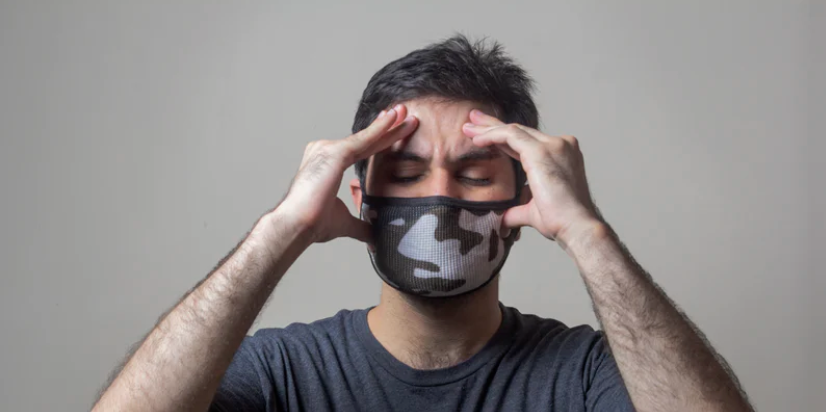Cancer and Headaches
May 26, 2021
Share

Headache is a very common problem. It is also a symptom many cancer patients experience, whether alone or with other symptoms.
There are two types of headache depending on the cause;
- Primary headache; this is the type of headache mostly caused or aggravated by stress, like tension headache, migraine headache, and cluster headache.
- Secondary headache; is the headache that happens as a result of other problems affecting the brain like brain tumors, infections, or medications.
Both types of headache can affect cancer patients, thus the headaches you might experience can vary in site, type and severity according to the cause.
The most common causes of headache in cancer patients include:
1- If the cancer is originally in the brain, spinal cord or pituitary gland tumors, or tumors in other places that had spread to the brain.
2- As a side-effect of chemotherapy, brain radiation therapy or other cancer treatments.
3- As a side-effect of other medications, such as high blood pressure treatments, antibiotics or antiemetics.
4- Cancer related conditions as anemia or dehydration.
6- Stress, anxiety, fatigue, poor appetite and sleep.
5- Infections as sinusitis or meningitis.
How to manage headaches:
If you started having new headaches, you must tell your healthcare team about them.
- Describe how frequent and severe they are, the exact site, if they occur at certain times of the day, describe if they were sharp, throbbing, dull or pressure like, and whether you are having any other symptoms as well.
- Symptoms your doctor would want to know if you have are:
- Dizziness
- Blurring of vision
- Nausea
- Vomiting
- Fever
- Pain and stiffness in your neck that is worse by moving
- Limb weakness, change in your sensations, or inability to talk.
- Poor appetite and decreased fluid intake.
- Fatigue, looking pale, decreased activity, or shortness of breath.
- Talk to your doctor if you have low mood or feeling anxious.
- Your team can order some tests to rule out some of the causes as:
- Blood tests can tell whether or not you are having anemia.
- Brain imaging like CT or MRI scans, in case of suspected new brain mass or change in size of an old mass.
- Talk to your healthcare team about you medication list and their possible side-effects.
- If possible, your doctors will treat the conditions causing you headache like giving antibiotics for infections, or iron supplement for anemia.
- Your doctors might also prescribe medications for headache, depending on its type and cause. These medications might include; paracetamol, non steroidal anti-inflammatory as ibuprofen, triptans, antidepressants, steroids in case of brain cancer or cancer spread,
Tips to help you cope with headaches:
- Eat an adequate healthy diet and drink enough fluids to prevent fatigue and anemia.
- Sleep well and give your body the rest it needs.
- Avoid noisy or crowded places when you are experiencing the headache.
- Avoid stress and tell your doctors if you’re having low mood.
- If you are also experiencing dizziness, make sure your house is safe and organized to avoid the risk of falling.
- Certain techniques can help you cope with headaches including relaxation, yoga, massage, ask your doctors about their availability and if they will be helpful in your case.
- Tell your doctor if headache is becoming more frequent or severe, if it changes in character or doesn’t go away.
Feel free to watch this video as many times as you would like. If you have any additional questions, you are welcome to reach out to your doctor’s office.
Trusted by cancer patients around the world.
Joan-Smith
Virginia, United States
ChuckHastings
Florida, United States
DebraPearl
Pennsylvania, United States
Jennweeks
Iowa , United States
PatrickDW
Western Cape, South Africa
Jamie-Alexander
Floroda United States
CJ
Liz
Florida, United States
NYCynthia
New York, United States
Ferdi
California, United States